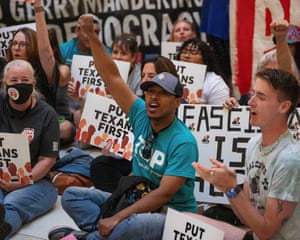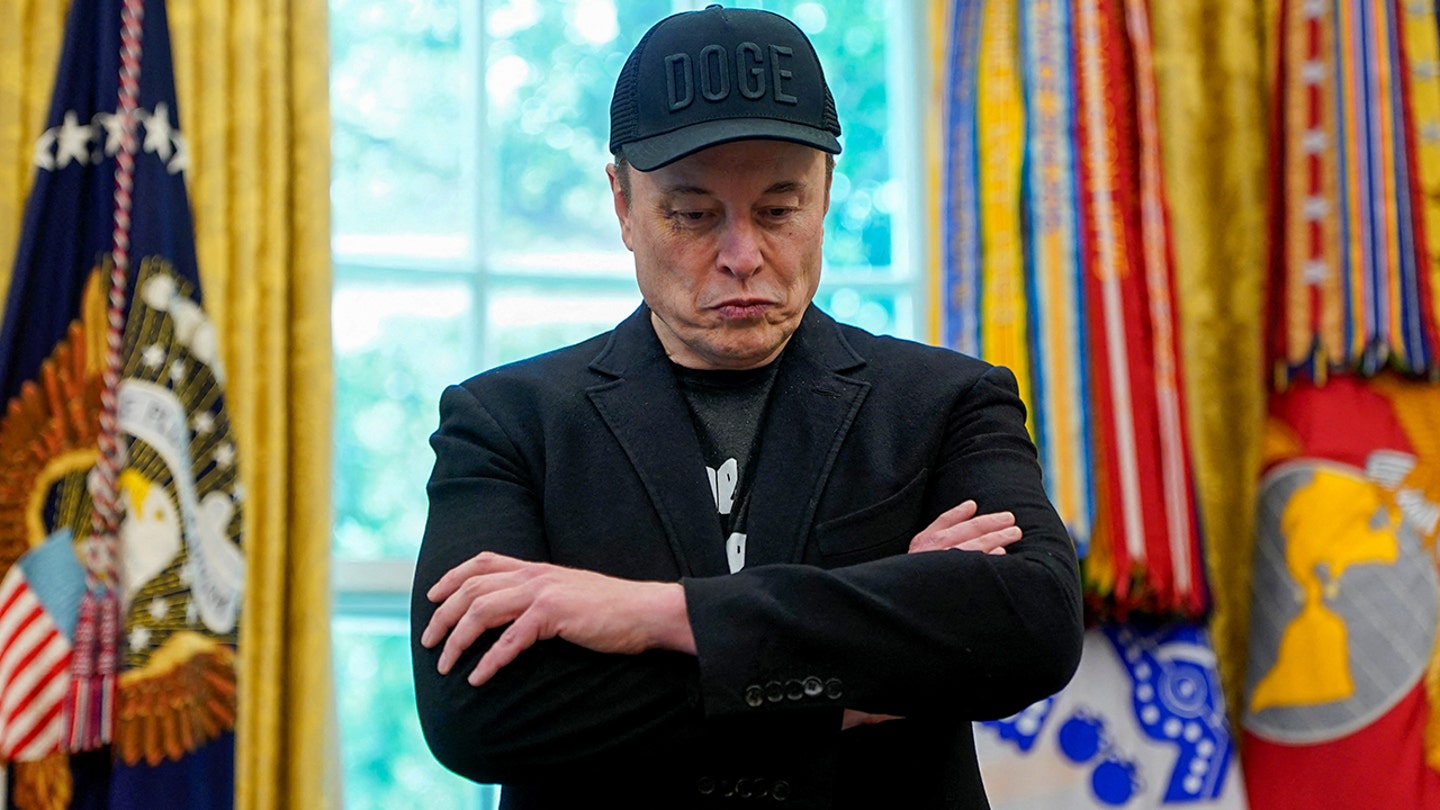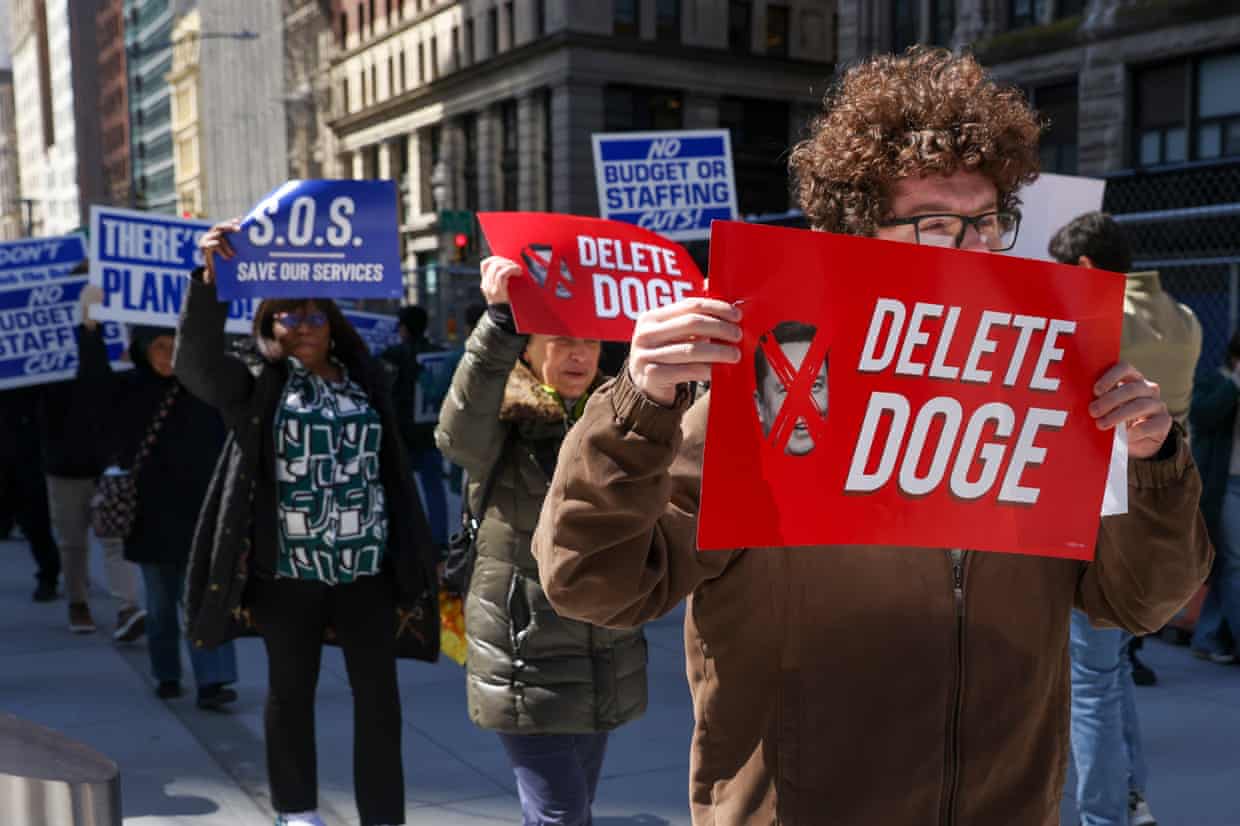
Controversial UFC fighter takes back his Trump support in wild rant: 'I was fooled'
Entities mentioned:
- Bryce Mitchell: Moral outrage, Righteousness, Indignation
- Donald Trump: Power, Influence, Legacy
- Elon Musk: Ambition, Influence, Recognition
Article Assessment:
Credibility Score: 65/100
Bias Rating: 55/100 (Center)
Sentiment Score: 30/100
Authoritarianism Risk: 35/100 (Generally Democratic)
Bias Analysis:
The article presents both Mitchell's previous and current views on Trump, showing some attempt at balance. However, the focus on controversial statements and religious references may slightly skew perceptions.
Key metric: Political Polarization Index
Ladies and gentlemen, we've got a SHOCKING REVERSAL in the political octagon! Bryce Mitchell, once a die-hard Trump supporter, has just executed a stunning takedown on the former president. This is a game-changing move that's sending shockwaves through the political arena! Mitchell's gone from being Trump's MVP to calling him the Antichrist - talk about a fourth-quarter twist! This fighter's new stance is like a knockout punch to Trump's base. We're seeing a major shift in the playbook here, folks. Mitchell's pulling no punches, accusing Trump of dropping the ball on key plays like the Epstein files and putting America on the bench. This is the kind of momentum swing that can turn the whole match around! Trump's team will need to huddle up and find a way to counter this unexpected offensive if they want to stay in the game. Remember, in politics just like in sports, it's not over till the final whistle blows!

Grand jury declines to indict alleged Washington DC sandwich thrower
Entities mentioned:
- NAACP: Justice, Righteousness, Influence
- Donald Trump: Power, Control, Revenge
- Harvard University: Self-preservation, Professional pride, Legacy
- Federal Reserve: Independence, Professional pride, Duty
- Lisa Cook: Self-preservation, Professional pride, Justice
- Elon Musk: Influence, Power, Recognition
- Gavin Newsom: Ambition, Competitive spirit, Influence
Article Assessment:
Credibility Score: 70/100
Bias Rating: 35/100 (Lean Left)
Sentiment Score: 30/100
Authoritarianism Risk: 55/100 (Mixed/Neutral)
Bias Analysis:
The article leans slightly left in its framing, giving more space to criticisms of Trump and Republican actions. While it covers various topics, there's a noticeable emphasis on Trump's controversial moves and Democratic responses.
Key metric: Political Polarization Index
As a social scientist, I analyze that this article highlights increasing political tensions and polarization in the United States. The multiple lawsuits, conflicts between the Trump administration and various entities (including the Federal Reserve), and the racial redistricting issues all point to deepening divides in American politics. The attempts to influence key institutions like the Federal Reserve and redraw congressional maps suggest a struggle for power and control over democratic processes. This heightened conflict and the undermining of institutional independence could lead to increased political polarization, potentially affecting governance, policy-making, and public trust in democratic institutions.

DOGE put Americans’ Social Security records at risk, whistleblower says
Entities mentioned:
- Department of Government Efficiency: Efficiency, Duty, Professional pride
- Social Security Administration: Security, Duty, Professional pride
- Charles Borges: Duty, Righteousness, Security
- Government Accountability Project: Justice, Transparency, Duty
- Office of Special Counsel: Justice, Duty, Security
- Trump administration: Power, Control, Influence
- Elon Musk: Ambition, Influence, Control
- DOGE team: Efficiency, Control, Influence
- Supreme Court: Justice, Duty, Control
- Nick Perrine: Professional pride, Security, Duty
Article Assessment:
Credibility Score: 75/100
Bias Rating: 45/100 (Center)
Sentiment Score: 25/100
Authoritarianism Risk: 35/100 (Generally Democratic)
Bias Analysis:
The article presents multiple perspectives, including the whistleblower, the agency, and concerned groups. It maintains a neutral tone while reporting on a controversial issue, balancing criticism with official responses.
Key metric: Data Security and Privacy
As a social scientist, I analyze that this article highlights a significant breach in data security practices within a major government agency, potentially affecting millions of Americans. The whistleblower's complaint suggests a systemic failure in protecting sensitive personal information, which could have far-reaching consequences for individual privacy and national security. The involvement of private sector entities (DOGE team) in accessing government data raises questions about the balance between modernization efforts and data protection. This situation reflects broader tensions between technological advancement, government efficiency, and the safeguarding of personal information in the digital age. The response from the Social Security Administration appears to downplay the severity of the issue, which may indicate a disconnect between internal perceptions of security and actual vulnerabilities. This incident could lead to decreased public trust in government institutions and their ability to protect citizens' data, potentially impacting social cohesion and civic engagement.

Trump team keeps giving away the game on its retribution crusade
Entities mentioned:
- Donald Trump: Power, Revenge, Control
- John Bolton: Self-preservation, Duty, Professional pride
- Kash Patel: Loyalty, Ambition, Power
- Dan Bongino: Loyalty, Righteousness, Influence
- Pam Bondi: Loyalty, Power, Influence
- Christopher Wray: Duty, Professional pride, Wariness
- Merrick Garland: Duty, Justice, Professional pride
- Ed Martin: Loyalty, Ambition, Influence
- Letitia James: Justice, Ambition, Recognition
- James Boasberg: Duty, Justice, Professional pride
- James Comey: Self-preservation, Justice, Indignation
- Tulsi Gabbard: Loyalty, Ambition, Influence
- Kristi Noem: Loyalty, Ambition, Power
- Elon Musk: Power, Influence, Recognition
Article Assessment:
Credibility Score: 75/100
Bias Rating: 35/100 (Lean Left)
Sentiment Score: 25/100
Authoritarianism Risk: 70/100 (Authoritarian Tendencies)
Bias Analysis:
The article leans left in its framing, focusing primarily on criticisms of the Trump administration's actions. While it presents factual information, the selection and emphasis of events paint a negative picture of Trump and his allies, with less attention to counterarguments.
Key metric: Rule of Law Index
As a social scientist, I analyze that this article highlights a concerning trend in the politicization of the US justice system under the Trump administration. The repeated instances of public officials making prejudicial statements about ongoing investigations, targeting political opponents, and disregarding established norms of prosecutorial conduct suggest a significant erosion of the traditional separation between politics and justice. This behavior risks undermining public trust in legal institutions and the impartial application of law, which are crucial components of the Rule of Law Index. The contrast drawn between the handling of investigations into Trump's opponents versus those into Trump himself further emphasizes this disparity, potentially leading to a perception of a two-tiered justice system based on political allegiance.

Elon Musk halts plans for new political party, prioritizing business instead: report
Entities mentioned:
- Elon Musk: Ambition, Influence, Self-preservation
- America Party: Unity, Freedom, Change
- Republican Party (GOP): Power, Control, Self-preservation
- JD Vance: Ambition, Power, Loyalty
- Donald Trump: Power, Control, Revenge
- Department of Government Efficiency: Duty, Professional pride, Control
Article Assessment:
Credibility Score: 65/100
Bias Rating: 55/100 (Center)
Sentiment Score: 45/100
Authoritarianism Risk: 35/100 (Generally Democratic)
Bias Analysis:
The article presents a relatively balanced view, incorporating multiple perspectives and sources. However, there's a slight lean towards emphasizing the drama and personal conflicts, which is typical of center-right reporting on political figures.
Key metric: Political Polarization Index
As a social scientist, I analyze that this article highlights the complex interplay between business interests and political ambitions in the American political landscape. Musk's reported decision to halt plans for a new political party reflects the challenges of disrupting the established two-party system. The apparent reconciliation between Musk and Trump, after a period of public conflict, suggests a strategic realignment that could impact political discourse and voter sentiment. This development may contribute to maintaining the status quo in terms of political polarization, as the potential for a significant third-party option seems to have diminished. The article also underscores the influence of high-profile individuals in shaping public opinion and political narratives through social media platforms.

Musk Weighs Return To Politics After 60th Death On ‘Elden Ring Nightreign’ Tutorial
Entities mentioned:
- Elon Musk: Ambition, Recognition, Self-respect
- FromSoft: Professional pride, Influence, Competitive spirit
- Donald Trump: Power, Influence, Recognition
- NASA: Professional pride, Duty, Curiosity
Article Assessment:
Credibility Score: 30/100
Bias Rating: 40/100 (Lean Left)
Sentiment Score: 35/100
Authoritarianism Risk: 25/100 (Generally Democratic)
Bias Analysis:
The article leans slightly left, mocking a prominent right-wing figure and implying criticism of wealthy individuals in politics. However, the satire is relatively mild and focuses more on individual foibles than explicit political commentary.
Key metric: Public Trust in Government
As a social scientist, I analyze that this satirical article highlights the perceived disconnect between high-profile public figures and their responsibilities. The portrayal of Elon Musk struggling with a video game while contemplating political involvement suggests a critique of the revolving door between business and politics, as well as questioning the competence and motivations of wealthy individuals in public service roles. This narrative could potentially impact public trust in government by reinforcing skepticism about the qualifications and commitment of those in or seeking positions of power.

Mike Lee Stresses He Would Have Posted Same Thing If Own Family Savagely Murdered
Entities mentioned:
- Mike Lee: Righteousness, Moral outrage, Pride
- Democrats: Moral outrage, Justice, Indignation
- Gov. Walz: Duty, Security, Unity
- Elon Musk: Influence, Recognition, Controversy
Article Assessment:
Credibility Score: 65/100
Bias Rating: 40/100 (Lean Left)
Sentiment Score: 25/100
Authoritarianism Risk: 55/100 (Mixed/Neutral)
Bias Analysis:
The article leans left in its framing, presenting Senator Lee's statements in a way that invites criticism. While quoting Lee directly, the satirical nature and choice of words ('tasteless', 'mocking') suggest disapproval of his stance.
Key metric: Political Polarization Index
As a social scientist, I analyze that this article highlights the extreme polarization in American politics. Senator Mike Lee's hypothetical response to a tragedy affecting his own family demonstrates a prioritization of partisan rhetoric over empathy or unity. This behavior likely contributes to increased political division, potentially damaging democratic discourse and cooperation. The senator's willingness to use personal tragedy for political gain, even hypothetically, suggests a concerning trend in political communication where shock value and partisan point-scoring supersede constructive dialogue. This approach may further erode public trust in political institutions and exacerbate existing societal tensions.

US court says Trump’s Doge team can access social security numbers and other sensitive data
Entities mentioned:
- Trump administration: Control, Power, Efficiency
- Department of Government Efficiency (Doge): Efficiency, Control, Power
- Unions: Self-preservation, Security, Privacy
- US appeals court: Duty, Justice, Obligation
- Donald Trump: Power, Control, Efficiency
- Elon Musk: Ambition, Influence, Efficiency
Article Assessment:
Credibility Score: 75/100
Bias Rating: 45/100 (Center)
Sentiment Score: 35/100
Authoritarianism Risk: 65/100 (Authoritarian Tendencies)
Bias Analysis:
The article presents a relatively balanced view, including perspectives from both sides of the issue. However, there's a slight lean towards emphasizing the concerns of the unions and potential privacy issues, which may indicate a subtle center-left bias.
Key metric: Government Efficiency and Transparency
As a social scientist, I analyze that this court decision represents a significant shift in the balance between government efficiency efforts and individual privacy concerns. The ruling allows the Trump administration's Doge team to access sensitive personal data, potentially impacting millions of Americans. This move towards centralized data access could lead to increased government efficiency, but it also raises serious privacy and security concerns. The court's decision suggests a prioritization of administrative streamlining over potential privacy risks, which could have long-term implications for how personal data is handled in government systems. The conflict between unions and the administration highlights the tension between workforce protection and government downsizing initiatives. This case also demonstrates the ongoing debate about the appropriate scope and power of unofficial government teams like Doge in accessing and utilizing sensitive information.

Sean Duffy details spat with Elon Musk over firing air traffic controllers, says cabinet must call shots
Entities mentioned:
- Sean Duffy: Professional pride, Duty, Self-preservation
- Elon Musk: Ambition, Influence, Efficiency
- Department of Transportation: Safety, Control, Duty
- Department of Government Efficiency (DOGE): Efficiency, Influence, Control
Article Assessment:
Credibility Score: 70/100
Bias Rating: 55/100 (Center)
Sentiment Score: 45/100
Authoritarianism Risk: 35/100 (Generally Democratic)
Bias Analysis:
The article presents a balanced view of the conflict, giving voice to Duffy's perspective while also acknowledging Musk's innovative reputation. However, there's a slight lean towards supporting Duffy's position, possibly due to the recent air tragedy mentioned.
Key metric: Transportation Safety and Efficiency
As a social scientist, I analyze that this article highlights a conflict between government efficiency and safety concerns in the transportation sector. The disagreement between Sean Duffy and Elon Musk represents a broader tension between innovative cost-cutting measures and maintaining critical safety standards. This incident, especially in light of the subsequent tragic plane crash, underscores the delicate balance required in managing public transportation systems. The article also touches on themes of bureaucratic power dynamics and the importance of established governmental processes in decision-making.

US intel agency reviewing Grok video filmed during man’s commute to secure NSA facility
Entities mentioned:
- Elon Musk: Ambition, Influence, Recognition
- Tesla drivers: Curiosity, Enthusiasm, Recognition
- Grok AI: Competitive spirit, Influence, Recognition
- NSA: Security, Control, Professional pride
- US Cyber Command: Security, Control, Duty
- Jason Kikta: Professional pride, Security, Duty
Article Assessment:
Credibility Score: 75/100
Bias Rating: 50/100 (Center)
Sentiment Score: 35/100
Authoritarianism Risk: 45/100 (Mixed/Neutral)
Bias Analysis:
The article presents a balanced view of the incident, including perspectives from both tech and security sectors. It refrains from taking sides, focusing on factual reporting and expert commentary.
Key metric: National Security Integrity
As a social scientist, I analyze that this incident highlights a significant tension between technological advancement and national security protocols. The viral spread of a video featuring sensitive government facilities, inadvertently promoted by a high-profile tech figure, underscores the challenges in maintaining security in an era of ubiquitous personal technology and social media. This event may prompt a reevaluation of security measures at government facilities, particularly concerning the use of AI-enabled vehicles and personal recording devices. It also raises questions about the responsibilities of tech companies and their leaders in moderating content that may have national security implications. The incident could lead to stricter enforcement of existing regulations or the development of new policies to address the intersection of personal technology and secure facilities.